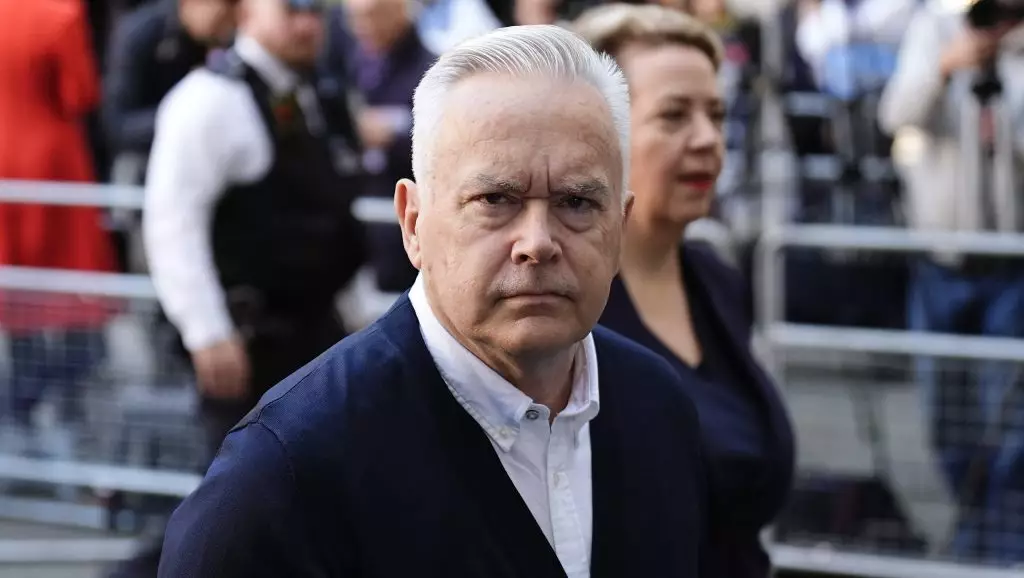The impending release of the BBC’s workplace culture review marks a significant turning point for one of the oldest public broadcasters in the world. This review, which comes in the wake of serious revelations surrounding former news anchor Huw Edwards, offers a rare opportunity for introspection and elevation of workplace standards within the corporation. Scheduled for disclosure after a town hall meeting on Monday, the review conducted by Change Associates promises to shine a spotlight on the pressing issues of workplace conduct, accountability, and the safeguarding of employee dignity.
For an organization renowned for its journalism and cultural contributions, it is both shocking and necessary that deeper inquiries into its internal culture have become paramount. The timing of this review, especially against the backdrop of troubling allegations regarding Edwards and other high-profile figures associated with the BBC, adds a layer of urgency to the discourse surrounding workplace ethics and power dynamics. In communicating this concern to its employees, BBC Chair Samir Shah has underscored the significance of this review as a moment of collective accountability and a chance to foster an inclusive environment.
Understanding the Review’s Framework and Goals
The forthcoming report, led by consultant Grahame Russell, is not merely a procedural requirement but a strategic initiative aimed at reviewing the very fabric of the BBC’s workplace culture. It seeks to identify actionable steps that can reinforce the corporation’s core values and Code of Conduct, ensuring that all employees feel empowered to report misconduct without fear of retaliation. Given the various high-profile incidents that have surfaced, including allegations of bullying and sexual misconduct, it is imperative for the BBC to step forward with not just promises, but pragmatic recommendations that reflect a genuine commitment to change.
Key areas of focus include establishing a clear understanding of the consequences associated with inappropriate behavior and abuse of power, as well as ensuring that everyone—from staff members to top executives—upholds the organization’s values. This forward-looking framework aims to create a culture in which all employees can thrive, a vision echoed by BBC Director General Tim Davie, who advocates for a zero-tolerance policy toward misconduct.
Challenges and Historical Context
While the BBC has issued reviews in the past regarding its workplace culture, this latest investigation stands out due to its timing and the scale of allegations that catalyzed it. The 2013 Respect at Work Review, which followed the Jimmy Savile scandal, serves as a stark reminder of the institution’s historical challenges with misconduct and power imbalance. In contrast to that review, which primarily focused on historical issues, the current investigation emphasizes a proactive approach—addressing contemporary concerns and seeking to build a system that is resilient against future scandals.
The juxtaposition of these reviews highlights an ongoing pattern within the organization: a reactive response to crises rather than a proactive commitment to fostering enduring cultural change. The fact that employees have come forward to “dish dirt” speaks to a broader cultural shift—a willingness to confront the status quo and demand accountability from those in positions of power. Such transparency is essential not only for healing past wounds but also for building a robust framework that attracts diverse talent and fosters an environment of mutual respect.
Looking Ahead: The Broader Implications for Workplace Culture
The impact of this review extends beyond the walls of the BBC; it sends a powerful message to other organizations facing similar issues. As societal standards evolve and expectations for workplace conduct tighten, the BBC has the opportunity to set a benchmark in accountability. This review should act as a catalyst for change beyond its organizational boundaries, influencing public and private sectors alike.
Moreover, it invites employees to become active participants in the shaping of their workplace culture. A transparent and well-communicated review can transform how staff view their roles within the organization, encouraging them to engage in conversations about ethics, integrity, and collaboration. By prioritizing these discussions, the BBC can not only mend its reputation but also emerge as a leader in workplace reform—an organization that genuinely prioritizes the voices of its employees over the preservation of its traditional power structures.
Ultimately, the effectiveness of the BBC’s workplace culture review will depend on the sincerity of its implementation and the ongoing commitment of its leadership to uphold the values it professes. This is not just a moment for reflection but a call to action that could resonate far beyond the hallowed halls of Broadcasting House.

